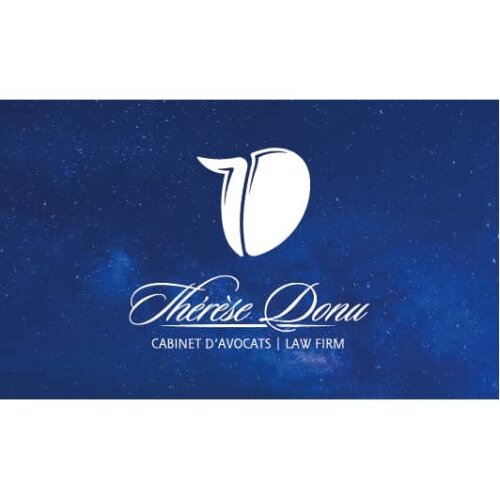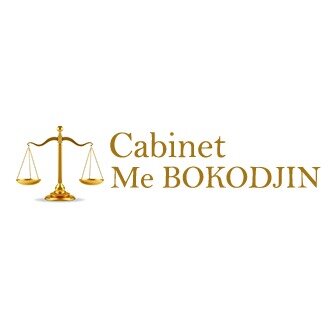Best Collaborative Law Lawyers in Lomé
Share your needs with us, get contacted by law firms.
Free. Takes 2 min.
Free Guide to Hiring a Family Lawyer
List of the best lawyers in Lomé, Togo
About Collaborative Law in Lomé, Togo
Collaborative Law in Lomé, Togo, is an emerging approach to resolving legal disputes, primarily in the context of family law. It offers a structured, non-adversarial framework where all parties work collaboratively to reach a mutually agreeable solution without resorting to litigation. This method involves joint sessions with legal professionals who guide the participants towards amicable settlements, emphasizing respect, transparency, and cooperation. Collaborative Law is gradually gaining recognition in Lomé, promoting a culture of peaceful conflict resolution and preserving relationships.
Why You May Need a Lawyer
There are several scenarios where individuals might require legal assistance through Collaborative Law in Lomé:
- Divorce or Separation: To amicably divide assets, determine spousal support, and arrange custody agreements.
- Business Disputes: For resolving conflicts between business partners or stakeholders while maintaining business relationships.
- Family Conflicts: Including inheritance disputes or familial misunderstandings that require structured dialogue.
- Tenant-Landlord Issues: To negotiate rental agreements or address related disputes without resorting to court proceedings.
Local Laws Overview
In Lomé, Togo, Collaborative Law operates within the broader spectrum of the Togolese legal system, which is based on civil law. Though still developing, the integration of Collaborative Law into the legal system is supported by several principles:
- Voluntary Participation: All parties must willingly engage in the process.
- Commitment to Resolution: There is a collective pledge to resolve issues without litigation.
- Full Disclosure of Information: Parties are required to openly share relevant information and documents.
- Confidentiality: All discussions and materials shared in the process are confidential and cannot be used in subsequent court proceedings.
Frequently Asked Questions
What is Collaborative Law?
Collaborative Law is a legal process enabling clients to resolve disputes without going to court, through structured, cooperative dialogue, facilitated by trained lawyers.
How is Collaborative Law different from traditional law?
The primary difference is the focus on collaboration rather than confrontation, aiming for solutions beneficial to all parties involved without involving a judge or a jury.
What types of cases are suitable for Collaborative Law?
Cases involving personal relationships, such as divorce, child custody, or inheritance disputes, are particularly suited for Collaborative Law.
Is Collaborative Law legally binding?
Yes, the agreements reached through Collaborative Law can be formalized and become legally binding, subject to court approval if necessary.
What happens if the collaborative process fails?
If the process fails, parties can still choose to proceed with litigation, although the collaborative lawyers would typically not continue to represent them in court.
Are there any costs involved in Collaborative Law?
Costs can vary based on the complexity of the issues and the professionals involved. Generally, it may be less costly than undergoing a full court trial.
How long does the Collaborative Law process take?
The timeline depends on the cooperation of the parties and the complexity of the issues but is often quicker than traditional litigation.
Who attends the collaborative sessions?
Typically, the parties themselves, their respective collaborative lawyers, and sometimes other relevant professionals like child specialists or financial advisors.
Is Collaborative Law recognized by Togolese law?
Yes, it is progressively recognized and encouraged as a viable dispute resolution method complementing the traditional legal system.
Can parties switch from Collaborative Law to another dispute resolution method?
Yes, parties retain the option to pursue other legal avenues if the collaborative process does not result in a satisfactory settlement.
Additional Resources
For further assistance and resources related to Collaborative Law in Lomé, Togo, consider reaching out to:
- The Togolese Bar Association: Can provide referrals to trained collaborative lawyers.
- Local Family Courts: Offer resources and information about alternative dispute resolution methods.
- Civil Society Organizations: Some organizations may offer mediation and conflict resolution services.
- Legal Aid Clinics: Can provide free or low-cost legal advice to qualifying individuals.
Next Steps
If you believe Collaborative Law might be the right approach for your legal issue in Lomé, Togo, consider taking the following steps:
- Consult with a legal professional experienced in Collaborative Law to evaluate your specific situation.
- Gather all relevant documents and information pertaining to your case.
- Discuss the collaborative approach with the other parties involved to see if it is a mutually agreeable option.
- Choose a collaborative lawyer committed to guiding you through the process peacefully and effectively.
- Prepare for collaborative sessions by setting clear goals and maintaining open communication.
Lawzana helps you find the best lawyers and law firms in Lomé through a curated and pre-screened list of qualified legal professionals. Our platform offers rankings and detailed profiles of attorneys and law firms, allowing you to compare based on practice areas, including Collaborative Law, experience, and client feedback.
Each profile includes a description of the firm's areas of practice, client reviews, team members and partners, year of establishment, spoken languages, office locations, contact information, social media presence, and any published articles or resources. Most firms on our platform speak English and are experienced in both local and international legal matters.
Get a quote from top-rated law firms in Lomé, Togo — quickly, securely, and without unnecessary hassle.
Disclaimer:
The information provided on this page is for general informational purposes only and does not constitute legal advice. While we strive to ensure the accuracy and relevance of the content, legal information may change over time, and interpretations of the law can vary. You should always consult with a qualified legal professional for advice specific to your situation.
We disclaim all liability for actions taken or not taken based on the content of this page. If you believe any information is incorrect or outdated, please contact us, and we will review and update it where appropriate.









